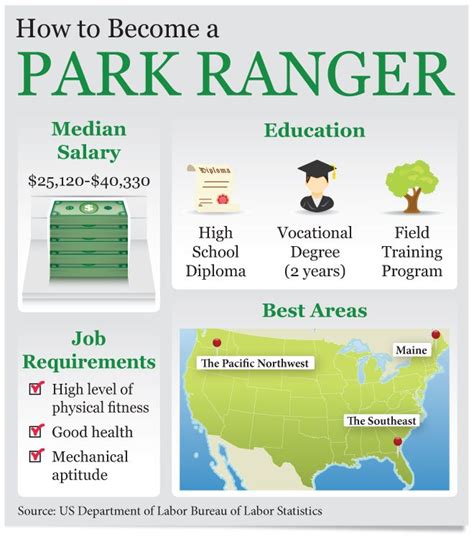How to Become a Park Ranger: A Comprehensive Guide
Want a career that combines the great outdoors with public service? Becoming a park ranger could be your perfect path. This comprehensive guide will walk you through the steps to achieve your dream job, covering everything from education and training to the essential skills and qualities you'll need. Let's explore the exciting world of park ranger careers!
Educational Pathways to Becoming a Park Ranger
While there's no single required degree, a strong educational foundation significantly boosts your chances. Many successful park rangers hold degrees in:
- Natural Resources Management: This provides a solid base in ecology, conservation, and environmental science, crucial for understanding and protecting park ecosystems.
- Environmental Science: A focus on environmental issues and their solutions is highly valuable in park management and conservation efforts.
- Forestry: Expertise in forest management, including sustainable practices and wildfire prevention, is particularly relevant for many ranger positions.
- Wildlife Biology: For rangers focusing on wildlife protection and research, this specialization is invaluable.
- Recreation Management: Understanding recreation principles and visitor management is key for ensuring positive park experiences.
Beyond the Degree: While a bachelor's degree is often preferred, some entry-level positions might accept an associate's degree combined with relevant experience. Furthermore, many park systems value certifications in areas such as first aid, CPR, wilderness first responder, and specialized skills like boat operation or search and rescue.
Essential Skills and Qualities for Park Rangers
The job goes beyond simply enjoying nature. Successful park rangers possess a blend of hard and soft skills:
Hard Skills:
- Knowledge of ecology, botany, and zoology: Understanding the local flora and fauna is fundamental.
- Law enforcement and emergency response: Many roles involve enforcing park regulations and responding to emergencies.
- Communication and public speaking: Educating visitors and interacting with diverse groups is crucial.
- Physical fitness and stamina: The job demands physical endurance for hiking, patrolling, and responding to incidents.
- Technical skills: Proficiency in GPS, GIS, and other relevant technologies is becoming increasingly important.
Soft Skills:
- Problem-solving and decision-making: Rangers often face unpredictable situations requiring quick, effective responses.
- Patience and empathy: Working with diverse visitors, often in challenging circumstances, requires significant patience.
- Teamwork and collaboration: Rangers often collaborate with other staff and external agencies.
- Leadership and initiative: Taking charge and motivating others is important in many roles.
- Adaptability and resilience: Working outdoors means coping with varying weather conditions and unexpected challenges.
Gaining Experience: Internships and Volunteer Work
Practical experience is invaluable. Consider these avenues:
- Park Internships: Many national and state parks offer internships providing hands-on experience in various aspects of park management.
- Volunteer Work: Volunteering at local parks or conservation organizations provides valuable experience and demonstrates your commitment.
- Seasonal Positions: Seasonal ranger positions can be excellent entry points, offering opportunities to build skills and network.
The Application Process: Tips for Success
Landing a park ranger job is competitive. Here's how to increase your chances:
- Tailor your resume and cover letter: Highlight relevant skills and experiences that align with specific job descriptions.
- Network with park professionals: Attend conferences, join relevant organizations, and connect with park rangers on LinkedIn.
- Prepare for interviews: Practice answering common interview questions and demonstrate your enthusiasm and commitment.
- Be persistent and patient: The hiring process can be lengthy, so don't get discouraged.
Different Types of Park Ranger Jobs
The term "park ranger" encompasses a wide variety of roles:
- Law Enforcement Ranger: Focuses on enforcing park regulations and maintaining public safety.
- Naturalist Ranger: Educates visitors about park ecosystems and natural history.
- Maintenance Ranger: Responsible for maintaining park infrastructure and facilities.
- Resource Management Ranger: Oversees the ecological health of the park.
Becoming a park ranger requires dedication, hard work, and a genuine passion for the outdoors. By following these steps and developing the necessary skills, you can significantly increase your chances of landing your dream job and contributing to the preservation of our natural wonders.
